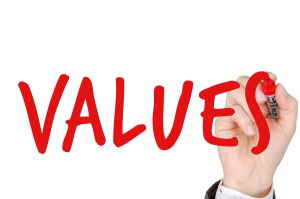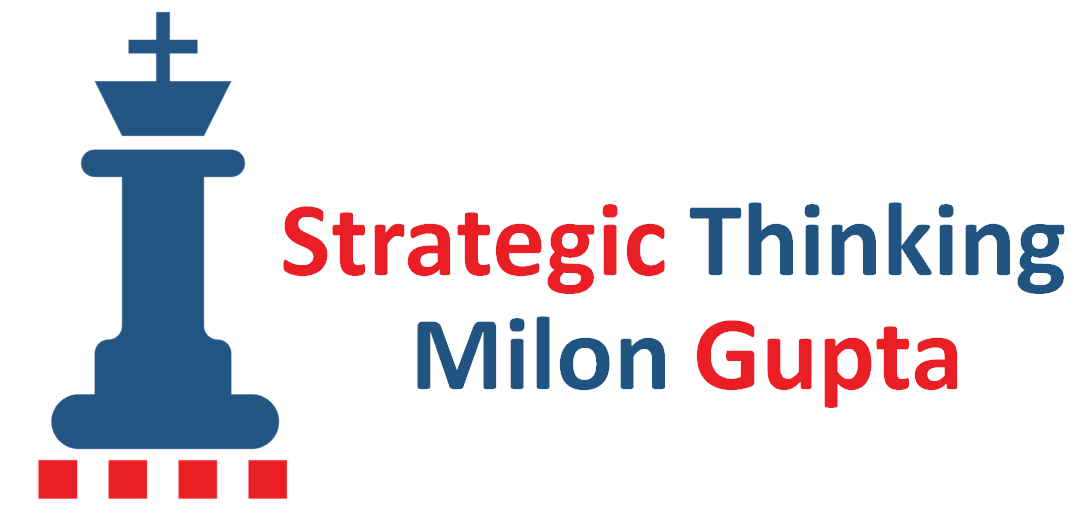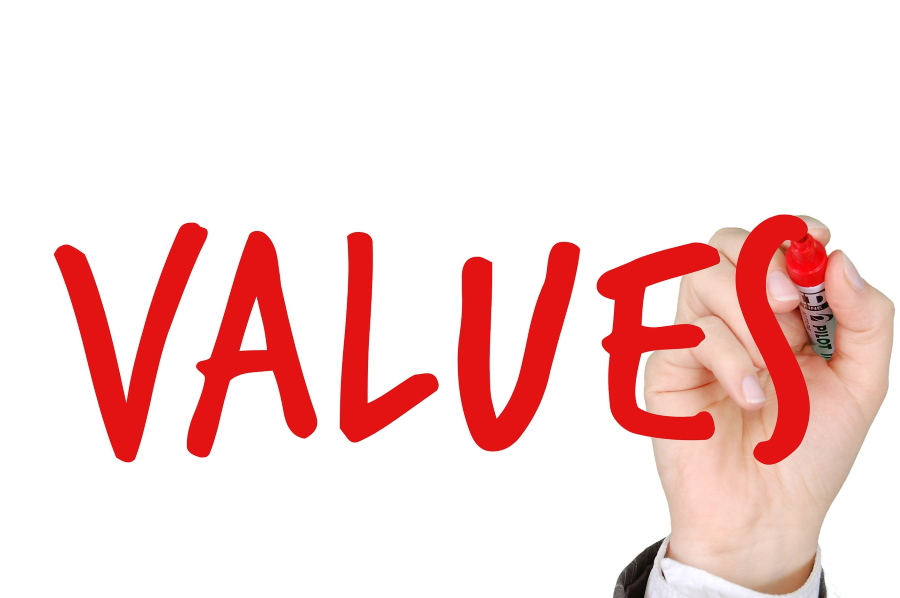 Values are highly popular among companies around the world. Almost every large enterprise has published a set of corporate values on their website and in glossy brochures. There is a good reason for this, because values can fulfil several important functions: they guide corporate decisions, shape company culture, influence employee behaviour and attract talent.
Values are highly popular among companies around the world. Almost every large enterprise has published a set of corporate values on their website and in glossy brochures. There is a good reason for this, because values can fulfil several important functions: they guide corporate decisions, shape company culture, influence employee behaviour and attract talent.
Popular global company values
Between the world’s largest listed companies, there are clear trends on the most popular values and categories of values, according to the amo global corporate values survey 2021.
The five most popular values identified by the survey are: 1. Integrity, 2. Innovation, 3. Respect, 4. Responsibility, and 5. Sustainability.
In the categories of values, there has been a shift towards 1. People & community (former #2), followed by 2. Ethics & integrity (former #1), 3. Creativity & innovation, 4. Professionalism & discipline, and 5. Employees & partners.
While the survey results show, which values rank high among large global companies, they don’t provide insights on what impact these values have on the business activities of the companies.
Values-action gap
The crucial question in this context is: To what extent do the publicly stated values match the lived values in day-to-day business activities? The few available survey results indicate a substantial gap between values and actions in most companies. According to Gallup survey data, only 27% of employees strongly agree that they believe in their company’s values, and just 23% of employees strongly agree they can apply their organization’s values to their work every day.
The consequences of company values not lived and the resulting values-action gap become most apparent in difficult times, when executives and employees face complex decisions under high time pressure. In addition, difficult times also expose the large space for interpretation and potential contradictions in regard to company values.
The Russian war against Ukraine as a crucial test of company values
 One of the biggest challenges for value-based company decisions is currently the Russian war against Ukraine. Different companies with business activities in Russia have responded differently to the situation. In the decision companies took, values play an important role, whether there has been a clear connection to the official company values or not. The examples of Nestlé and Ikea, two companies that consider themselves driven by values, illustrate the difference in responses and how they may be related to values.
One of the biggest challenges for value-based company decisions is currently the Russian war against Ukraine. Different companies with business activities in Russia have responded differently to the situation. In the decision companies took, values play an important role, whether there has been a clear connection to the official company values or not. The examples of Nestlé and Ikea, two companies that consider themselves driven by values, illustrate the difference in responses and how they may be related to values.
Nestlé – continues doing business in Russia
After the Russian attack on Ukraine started, Swiss food company Nestlé stopped shipping non-essential items such as coffee and mineral water to Russia, but is still providing essentials like pet and baby food. This is how Nestlé explained their decision in an official statement: “In Russia, we continue to focus on meeting the needs of the local people. (…) As a food company and employer, we recognize that we also have a responsibility toward our more than 7,000 employees in Russia — most of whom are locals. We will continue to do our utmost to ensure a reliable supply of safe and essential food products for the local people. ”
This decision was heavily criticised by Ukraine’s prime minister Denys Shmyhal. He wrote in a Twitter post: “Paying taxes to the budget of a terrorist country means killing defenseless children&mothers”.
It would be interesting to understand, if and how Nestlé’s decision is rooted in the company’s declared values. According to a document by Nestlé on its purpose and values, the company’s values are “rooted in respect”. More specifically, these values include: “Respect for ourselves”, “Respect for others”, “Respect for diversity”, and “Respect for the future”.
Another Nestlé document on “Our Business Principles” adds a few more values: “Our Corporate Business Principles are at the heart of our company. They reflect the basic ideas of fairness, honesty and a concern for individuals and families, communities and the planet.”
Based on these values, any decision could be justified. Nestlé’s decision could be explained as reflecting the value of respect for individuals, families, and communities in Russia, both employees and consumers. This shows that values may provide guidance in making tough business decisions. However, values don’t predetermine such decisions, because values can be interpreted in different ways and sometimes, the values of a company may be contradictory.
IKEA – has paused business in Russia
Swedish furniture company IKEA paused its operations in Russia in early March 2022 with the following explanation: “The war has had a huge human impact already. It is also resulting in serious disruptions to supply chain and trading conditions. For all of these reasons, the company groups have decided to temporarily pause IKEA operations in Russia.” Is the decision based on IKEA’s values? IKEA has eight key values: 1. Togetherness, 2. Caring for people and planet, 3. Cost-consciousness, 4. Simplicity, 5. Renew and improve, 6. Different with a meaning, 7. Give and take responsibility, 8. Lead by example. This set of values looks much more unique and specific to the company than the rather generic set of Nestlé’s values.
However, like in the case of Nestlé, the set of values doesn’t predetermine the decision in this case. What can be said is that the decision is clearly in line with most of the values, especially “Caring for people and planet” (in this case caring first of all for the Ukrainian people), and also “Simplicity”, as this is a straightforward and clear decision, compared to Nestlé’s more complex decision of pausing some side activities while continuing the core business activities.
Conclusion
As the examples of Nestlé and IKEA show, values don’t save companies from ethical dilemmas and hard choices based on trade-offs between unpleasant alternatives with uncertain outcomes. However, values can give companies especially in such difficult decision situations clear guidance. In this way, values can help companies stay true to themselves and at the same time cope with the complexities and ethical dilemmas of reality.
In order to make company values suitable for this purpose, it is not enough to write them down. It is rather important to define, what the company values mean for day-to-day business activities. Every business decision made can be a reflection of the company values and at the same time deepen the meaning of the values for the behaviour of all employees. This is when abstract values turn into lived values that make a company more valuable to its stakeholders.

